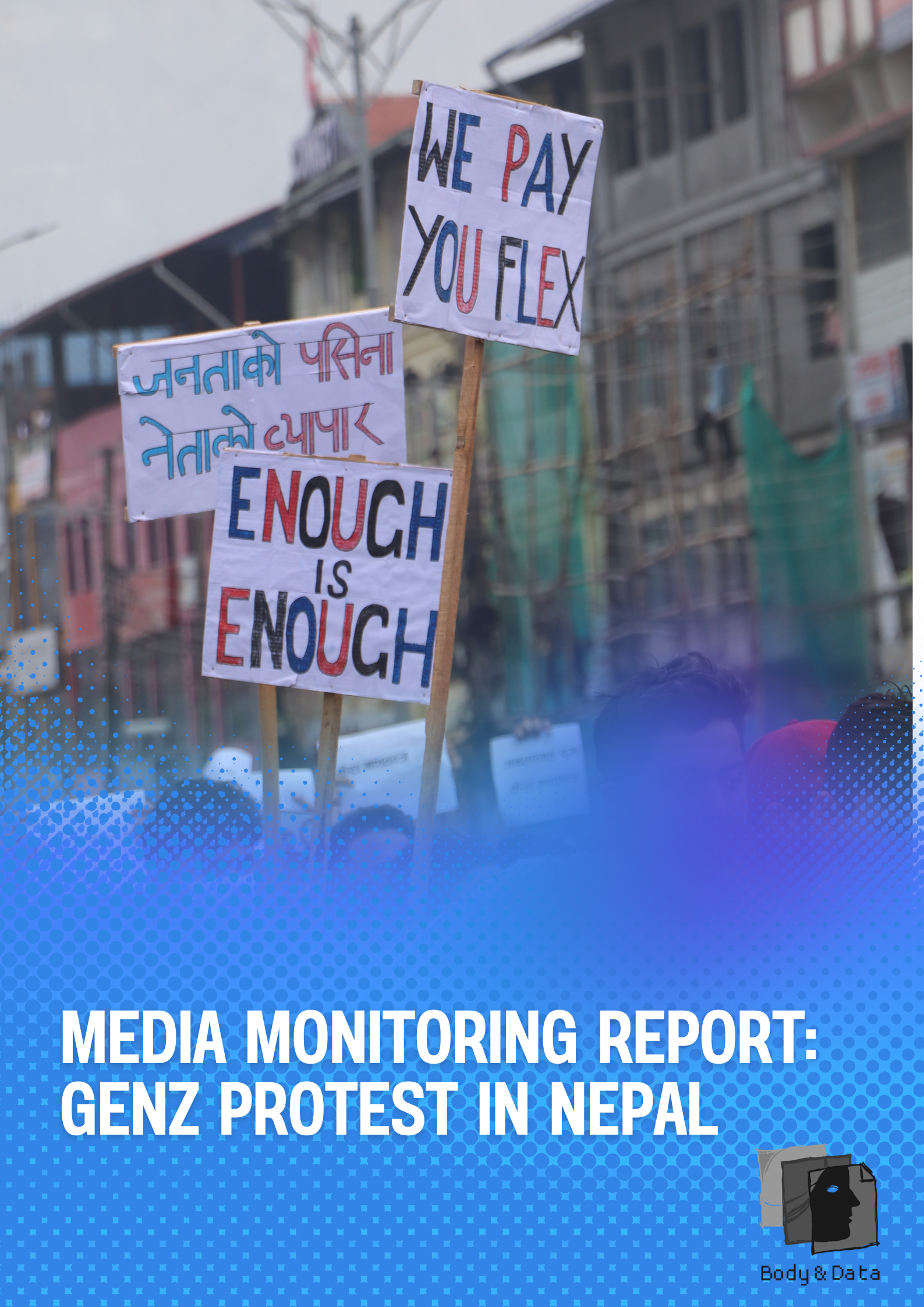
This paper analyzes media coverage of the Gen-Z Protest in Nepal, which began on September 8, 2025.
Thousands of youth protested against systemic corruption, nepotism, and the government’s ban on 26 social media platforms. Key demands included restoring free speech, the Prime Minister’s resignation, permanently banning failed politicians from leadership, and establishing an independent anti-corruption institution. Despite these broad political reform demands, many mainstream media and politicians focused only on the social media ban, trivializing the movement’s core concerns about accountability and political change.
This report argues that both national and international news platforms misrepresented the Gen-Z protests by over-focusing on the social media ban. Furthermore, media narratives were marked by the spread of misinformation, disinformation, and fear-mongering. This paper examines these media narratives and explores how these false narratives fueled public fear while social networks simultaneously unified and divided the public.
The analysis is limited by the data collection timeframe, which focused only on the week following the protest. This time constraint mean missed immediate, real-time reactions and the long-term narrative shifts. Additionally, purposive sampling of social media posts only captures influential content and does not represent the vast, dynamic entirety of public discourse.
